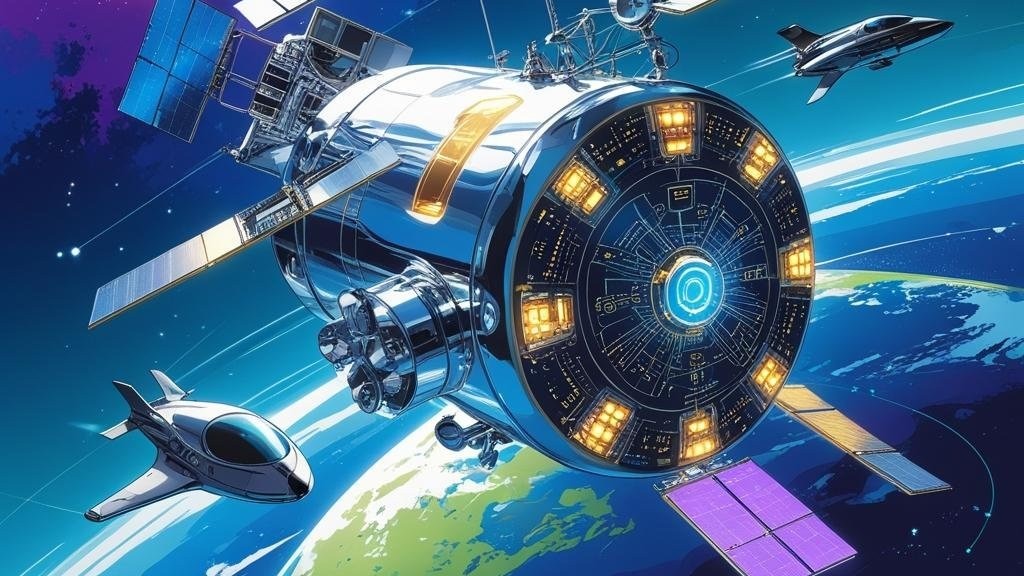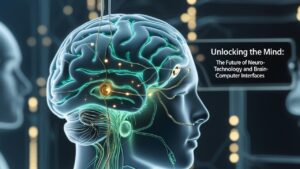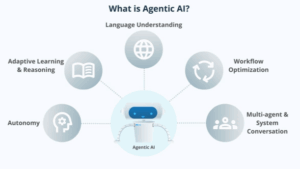As we push the boundaries of our cosmos, artificial intelligence (AI) is increasingly becoming an integral part of space technology. From autonomous navigation systems aiding spacecraft to advanced data analysis techniques enhancing satellite capabilities, AI is transforming how we explore space. In this edition of Eagles Tech Digest, we explore the latest advancements in space exploration, satellite technology, and commercial space travel, with a focus on the pivotal role AI plays in these transformative endeavors.
Advancements in Space Exploration
AI is revolutionizing space exploration with its ability to process vast amounts of data, make autonomous decisions, and optimize mission outcomes.
Key Highlights:
- Autonomous Exploration: NASA’s Mars Perseverance rover is equipped with sophisticated AI algorithms that enable it to navigate the Martian surface autonomously. It can make real-time decisions about which paths to take and which samples to collect, enhancing the efficiency of data gathering on the Red Planet.
- AI-Driven Astrobiology: AI models analyze Mars’ geology and atmosphere to identify signs of past life. Through machine learning, these systems can sift through massive datasets, looking for patterns that might indicate biological activity.
Innovations in Satellite Technology
The integration of AI in satellite technology is enhancing Earth observation capabilities, communication, and operational efficiencies. Autonomous satellite operations, guided by AI, improve decision-making for spacecraft navigation and collision avoidance. AI also aids in anomaly detection, ensuring robust satellite health monitoring by identifying potential issues before they escalate. Additionally, AI-driven data compression techniques optimize bandwidth usage, facilitating faster transmission of information. As a result, these advancements are expanding the capabilities and applications of satellites, making them crucial for sustainable development and global connectivity.
Noteworthy Developments:
- Real-Time Data Processing: Advanced AI algorithms facilitate real-time data processing in Earth observation satellites, enabling timely responses to natural disasters and environmental changes. For instance, the European Space Agency’s Copernicus program uses AI to automatically detect flooding, wildfires, and land-use changes.
- Predictive Maintenance: AI enhances satellite performance by predicting failures before they occur. Through machine learning, satellites can analyze their operational data and alert ground control to potential issues, ensuring sustained functionality and reliability.
The Rise of Commercial Space Travel:
Commercial space travel is burgeoning, with AI playing a central role in enhancing safety and operational efficiency. Below are some stated pros.
Highlights:
- Improved Safety Protocols: Companies like SpaceX and Blue Origin integrate AI systems to monitor spacecraft during all phases of flight. These systems analyze telemetry data in real-time, allowing for rapid adjustments that enhance safety and mission success.
- Customer-Centric Applications:AI is set to transform the customer experience in space tourism. Chatbots and AI-driven interfaces provide personalized travel planning and support, making space travel more accessible and engaging for the general public.
Building Lunar Bases: AI’s Role in the Next Frontier
The establishment of lunar bases represents a significant step toward long-term space exploration. Here, AI’s capabilities will be critical. Let’s take a look at some key objectives
Key Objectives:
- Construction Automation: AI-driven robotics will play crucial roles in the construction and maintenance of lunar habitats. These autonomous machines are designed to operate in extreme conditions, laying the foundation for human settlement on the Moon.
- Efficient Resource Management: AI will optimize habitat resource usage, managing life-support systems and energy conservation. This will be essential for sustaining human life on the Moon while paving the way for future missions to Mars.
Conclusion: Charting the Cosmic Future with AI: As we continue to explore the final frontier, AI stands as a transformative force in space technology. Its ability to enhance exploration, improve satellite operations, and facilitate commercial space travel will drive innovations and discoveries that were once the realm of science fiction. The collaboration between AI and human ingenuity will unlock new capabilities, expand our understanding of the universe, and prepare us for the challenges of interplanetary colonization.




